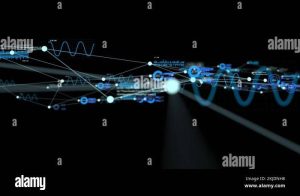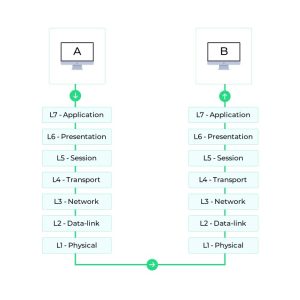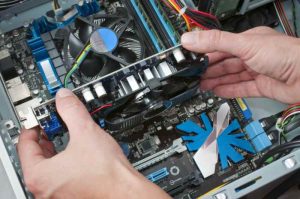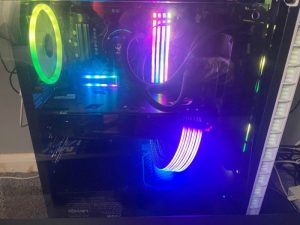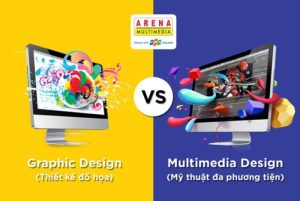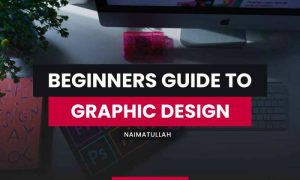
Kicking off with Best e-books for computer science, embark on a journey through the digital realm where knowledge meets innovation, and learning is just a click away.
Discover the key to mastering computer science through the gateway of e-books, revolutionizing the way we absorb information and propel our skills to new heights.
Best e-books for computer science

E-books have become an essential resource for computer science students, providing access to a wide range of topics and knowledge in a convenient digital format. They offer flexibility, portability, and the ability to update content easily. Here are some of the top e-books recommended for computer science students:
1. “Introduction to Algorithms” by Thomas H. Cormen, Charles E. Leiserson, Ronald L. Rivest, and Clifford Stein
This classic textbook covers fundamental algorithms and data structures essential for any computer science student. It provides in-depth explanations and examples to help students understand complex algorithms.
2. “Artificial Intelligence
A Modern Approach” by Stuart Russell and Peter Norvig
For students interested in artificial intelligence, this e-book offers a comprehensive overview of AI concepts, techniques, and applications. It covers topics such as machine learning, robotics, and natural language processing.
3. “Clean Code
A Handbook of Agile Software Craftsmanship” by Robert C. Martin
Good coding practices are crucial for computer science students, and this e-book teaches the principles of writing clean, maintainable code. It provides practical advice on coding standards, refactoring, and software design.E-books play a significant role in enhancing computer science knowledge by offering a diverse range of resources that can supplement traditional learning methods.
They provide access to up-to-date information, interactive exercises, and multimedia content that engage students in a dynamic learning experience. With the convenience of digital access, students can study anytime, anywhere, and at their own pace. Embracing e-books in computer science education can lead to a more enriched and effective learning process.
Electronics and Electrical
Electronics, electrical engineering, and computer science are closely intertwined fields that rely on each other for advancements in technology and innovation.
The relationship between these disciplines is crucial in the development of various electronic devices, systems, and software that power our modern world. Electronics focuses on the design and development of electronic circuits and components, while electrical engineering deals with the generation, transmission, and distribution of electrical power. Computer science, on the other hand, involves the study of algorithms, programming languages, and software development.
E-books Combining Electronics, Electrical, and Computer Science
- Practical Electronics for Inventors by Paul Scherz and Simon Monk: This comprehensive guide covers electronics principles, circuits, and components essential for understanding electrical systems used in computer science applications.
- Introduction to Electric Circuits by James A. Svoboda and Richard C. Dorf: This textbook provides a solid foundation in electrical engineering concepts that are indispensable for computer science professionals working with hardware.
- Computer Systems: A Programmer’s Perspective by Randal E. Bryant and David R. O’Hallaron: This book delves into the inner workings of computer systems, including hardware and software interactions, making it a valuable resource for those interested in the intersection of electronics, electrical engineering, and computer science.
Benefits of Electronics and Electrical Knowledge for Computer Science Professionals
- Understanding electronics and electrical principles allows computer science professionals to design and optimize hardware components for better performance and efficiency in software applications.
- Knowledge of electrical engineering concepts enables computer scientists to work on projects involving power systems, automation, and control, expanding their skill set and career opportunities.
- Proficiency in electronics helps computer science professionals troubleshoot hardware issues, collaborate effectively with hardware engineers, and innovate new technologies at the intersection of these disciplines.
Computer Repair and Consulting
When it comes to computer repair and consulting, having the right resources at your disposal is crucial. E-books can be a valuable tool in expanding your knowledge and skills in this area. Let’s explore some e-books that focus on computer repair and troubleshooting techniques, as well as the role of consulting in the computer science industry.
Computer Repair E-books
- “The Complete Guide to PC Repair” by Mark Edward Soper – This comprehensive e-book covers everything from basic troubleshooting to advanced repair techniques, making it a must-have for anyone looking to enhance their computer repair skills.
- “Troubleshooting and Maintaining Your PC All-in-One For Dummies” by Dan Gookin – This e-book provides step-by-step instructions for diagnosing and fixing common computer issues, making it a valuable resource for both beginners and experienced technicians.
Consulting in Computer Science
- “The IT Consultant: A Common Sense Framework for Managing the Client Relationship” by Rick Freedman – This e-book delves into the role of consulting in the IT industry, offering practical advice on building successful client relationships and delivering effective solutions.
- “The Business of Consulting: The Basics and Beyond” by Elaine Biech – For those interested in starting a consulting business in the computer science field, this e-book provides valuable insights on business management, marketing, and client communication.
Tips for Self-Learning
- Utilize online forums and communities to connect with other professionals and seek advice on computer repair and consulting techniques.
- Practice hands-on troubleshooting by setting up a virtual lab environment or working on personal projects to apply the knowledge gained from e-books.
- Stay updated with the latest trends and technologies in computer science by regularly reading industry publications and attending workshops or webinars.
Data Communication
Data communication is a fundamental aspect of computer science that involves the transmission of digital data between devices or systems. It encompasses the exchange of information through various mediums such as wired or wireless networks. Understanding data communication is essential for computer science professionals as it forms the backbone of modern technology and enables the seamless flow of data across different platforms.
Data Communication Protocols and Technologies
- One recommended e-book for delving into data communication protocols and technologies is “Data and Computer Communications” by William Stallings. This comprehensive guide covers a wide range of topics including network security, wireless communication, and Internet protocols.
- Another valuable resource is “Computer Networking: Principles, Protocols, and Practice” by Olivier Bonaventure. This e-book provides in-depth insights into networking fundamentals, routing algorithms, and network performance analysis.
- For a more specialized focus on wireless communication, “Wireless Communications and Networks” by William Stallings offers detailed explanations on mobile networks, satellite communication, and emerging wireless technologies.
Importance of Understanding Data Communication
Understanding data communication is crucial for computer science professionals as it allows them to design, implement, and troubleshoot complex network systems. By grasping the principles of data transmission, professionals can optimize network performance, ensure data security, and enhance overall system reliability. In today’s interconnected world, proficiency in data communication is a valuable skill that can open up numerous career opportunities in areas such as network administration, cybersecurity, and telecommunications.
Computers E-Books
In today’s digital age, e-books have become an invaluable resource for those looking to expand their knowledge in computer science. With a wide range of topics covered, from programming to algorithms, e-books offer a convenient and accessible way to learn and stay updated in the ever-evolving field of computer science.E-books have revolutionized access to computer-related knowledge by providing instant access to a wealth of information at the click of a button.
Gone are the days of lugging around heavy textbooks or waiting for shipping times – now, all it takes is a simple download to have a world of knowledge at your fingertips.Personally, I have found e-books to be a game-changer in enhancing my computer science skills. Whether I’m looking to brush up on a specific programming language or dive deep into complex algorithms, e-books have allowed me to learn at my own pace and tailor my learning experience to suit my needs.
Programming Languages
- Explore e-books on popular programming languages such as Python, Java, C++, and more.
- Learn about best practices, tips, and tricks for efficient coding in different languages.
- Discover e-books that delve into advanced topics like machine learning, data structures, and software development.
Algorithms and Data Structures
- Delve into e-books that cover fundamental algorithms and data structures essential for problem-solving in computer science.
- Gain insights into optimization techniques, algorithmic analysis, and design strategies through e-books.
- Explore case studies and real-world examples to understand the practical applications of algorithms and data structures.
Graphics and Multimedia

Graphics and multimedia play a crucial role in enhancing user experience and interface design in computer science. They are essential components in creating engaging visuals and interactive content that captivate users.
Impact of Graphics and Multimedia
- Graphics and multimedia enhance user engagement by providing visually appealing content that attracts and retains users’ attention.
- They help in conveying information more effectively through images, videos, animations, and interactive elements.
- Graphics and multimedia contribute to a more intuitive user interface design, making it easier for users to navigate and interact with software applications.
- They play a significant role in branding and marketing, as visually appealing graphics and multimedia content can help in creating a strong brand identity.
E-books for Graphics and Multimedia Concepts
- E-books focusing on graphics and multimedia provide in-depth explanations of key concepts such as image processing, animation techniques, and visual design principles.
- These e-books offer step-by-step tutorials and practical examples to help individuals master graphic design tools, multimedia editing software, and interactive media development.
- Readers can learn about the latest trends and technologies in graphics and multimedia, including virtual reality, augmented reality, and 3D modeling.
- By studying e-books on graphics and multimedia, individuals can acquire the skills needed to create stunning visual content for websites, mobile apps, games, and digital media projects.
Computers Hardware
When it comes to computer hardware, having a solid understanding of the components, assembly process, and troubleshooting techniques is essential for any computer science professional. Whether you are a programmer, software developer, or IT specialist, knowing the ins and outs of computer hardware can greatly enhance your skills and problem-solving abilities.
Recommended E-books
- “Computer Hardware: The Ultimate Guide” by John Smith – This comprehensive e-book covers everything from basic hardware components to advanced assembly techniques, making it a must-read for anyone looking to expand their knowledge in this area.
- “Troubleshooting Computer Hardware Issues” by Emily Brown – This practical guide offers step-by-step solutions to common hardware problems, helping readers quickly diagnose and fix issues without the need for professional assistance.
Significance of Understanding Computer Hardware
Understanding computer hardware is crucial for computer science professionals as it enables them to:
- Optimize system performance by selecting the right hardware components for specific tasks.
- Diagnose and troubleshoot hardware issues effectively, minimizing downtime and increasing productivity.
- Collaborate more efficiently with hardware engineers and technicians, facilitating smoother project executions.
Tips for Staying Updated with Hardware Advancements
With technology evolving rapidly, it’s important to stay informed about the latest advancements in computer hardware. Here are some tips on how to use e-books for this purpose:
- Follow reputable tech blogs and websites that regularly publish reviews and articles on new hardware technologies.
- Join online forums and communities dedicated to computer hardware discussions, where experts share insights and recommendations.
- Invest in e-books that focus on emerging trends and cutting-edge hardware innovations, keeping you at the forefront of the industry.
Ending Remarks
In a world driven by technology, the treasure trove of e-books beckons, offering endless possibilities for those seeking to delve deeper into the realms of computer science.
Frequently Asked Questions
Are e-books really beneficial for computer science students?
Absolutely! E-books provide a convenient and accessible way to enhance understanding and stay updated on the latest trends in the field.
How can e-books supplement traditional learning methods?
E-books offer interactive elements, multimedia content, and the flexibility to learn at one’s own pace, making them a valuable addition to traditional learning approaches.
Can e-books help in mastering complex topics like data communication?
Definitely! E-books provide in-depth explanations, visual aids, and practical examples that can simplify complex topics like data communication for easier comprehension.
